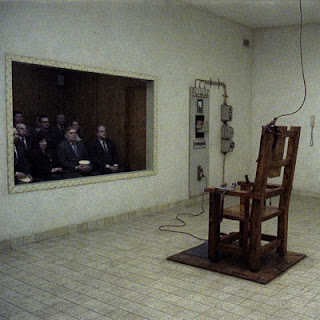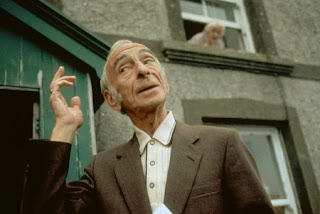Peindre ou Faire L'Amour, aka To Paint or Make Love, is a 2005 French movie directed by Arnaud Larrieu, starring Daniel Auteuil, Sabine Azéma, Amira Casar and Sergi Lopez. It tells the story of a middle-aged couple moving to an isolated house in the country and how their lives change right after that. It is clear that they are a wealthy couple; Auteuil's character, William has apparently newly retired and has fallen into a sense of feeling he is not used to, with all the time in the world in his hands. On the other hand, Madeleine, his wife, is still working, while she paints in her spare time, to relax. One day, as she is painting in the country, she meets the blind mayor and is quite taken by him, for his sensitive character. William and Madeleine decide to buy the house that Adam, the mayor, has shown to Madeleine, and move there permanently.

In the quite isolated life in the country, the two couples quickly become friends with each other, and then get even closer when Adam and his wife's house burns down one night and William and Madeleine offer to live together for a while, until they build their lives up again; so close, that one night they exchange their partners, leading to a life of, well, swingers. After the first time, William and Madeleine seem to be quite shaken by the whole event, however, they quickly change their minds, and spend another night as such after William and Madeleine's daughter's wedding in the country, and they even decide to move to an island with them, leaving everything behind, but the end would be quite different.


Before I watch a French movie, I always get excited. I lived in France for a while, and I did like their way of thinking, their intellectual minds and even many other things that are the reasons why many people almost hate them. Yet, I do begin to think that I have somewhat blindly fallen in love with every piece of cinema that the French have produced so far, they really can not pull it off every single time. I do get what the movie intended to give; the depth of relationships, friendships and trust, sexual desires versus emotional dependency etc. However, it is what I have tried to read in between the loosely knit story that I actually saw. The scenes were absolutely wonderful, even I, as not so much of a countryside lover, have fallen in love with the beautiful sunset, but it was not enough this time. The little story of their daughter and her marriage did seem a little unnecessary, well, it could have made the whole plot stronger, one believes that even more if pays attention to the daughter's face in the morning right after the wedding, but unfortunately, the scenes were too busy with other stuff.

I believed, for a very long time, that whatever an intellectual French couple did, it was worth watching on screen, however, I have changed, I guess; the Scandinavians have passed well beyond this group of intellectuals and their sense of reality or their sensitivity is what I feel closer now. Yet, I know myself, I am sure that I have not learned my lesson, and will jump on the next French-titled movie I find; what can I say, this could be my addiction.
























